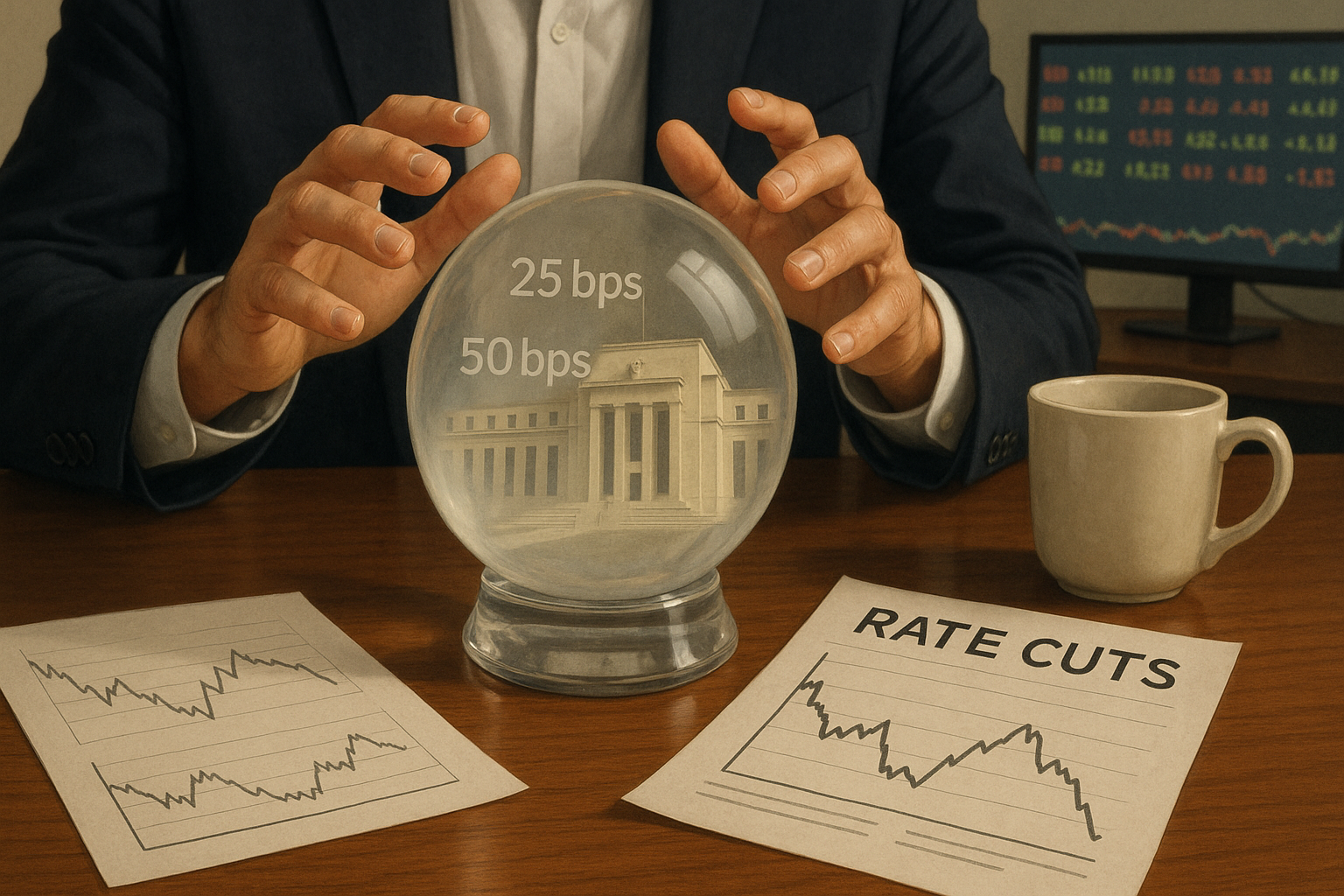The Fed is finally cutting rates. After months—no, years—of anticipation, Wall Street's favorite pastime of rate speculation is about to meet reality, and traders are doing what they do best: overthinking every syllable Powell might utter while pretending they've got it all figured out.
Let's get the obvious out of the way. The Fed's cutting rates next week. That's not the question. The real drama centers on whether we'll see a modest 25 basis point trim or a more aggressive 50-point chop. It's essentially the difference between the Fed whispering "we're just normalizing things" versus "uh, guys, we might have a problem here."
I've watched Powell perfect this strange linguistic ballet over the years—saying everything and nothing in the same breath, leaving analysts to dissect each adverb like medieval scholars arguing over ancient texts. It's quite the spectacle.
But here's what matters to your portfolio: what's already baked in?
The Market's Pre-Emptive Strike
Markets don't wait for official announcements. They're forward-looking beasts that started pricing in these cuts practically before the ink dried on the last rate hike paperwork.
Think about market pricing like this (it's a model I find useful): current prices represent a probability-weighted average of all possible outcomes. Right now, futures markets suggest roughly a 65% chance of a 50bp cut and 35% for a 25bp cut. Do the math—that's something like a 37.5bp cut already reflected in prices.
This creates a weird reaction setup for next week:
A 25bp cut? Expect some selling as traders pout about not getting their full 50.
A 50bp cut? We might see a quick "woohoo" rally that fades faster than summer twilight as everyone suddenly wonders, "Wait a minute... does the Fed know something terrible we don't?"
And look—the actual number isn't even the whole story. Powell's statement and press conference often matter more. He could deliver a small cut with dovish commentary about future reductions (bullish) or a big cut while insisting it's just a one-off adjustment (very bearish).
The Meta-Game of Market Psychology
The real game in markets isn't just knowing what's happening—it's anticipating how others will react to what everyone already knows is happening. Meta enough for you?
The S&P is up about 19% this year despite earnings growth that's been... let's charitably call it "modest." That doesn't exactly scream "cautious positioning." Retail sentiment indicators are showing bullishness. Institutional money isn't extremely positioned, but they're certainly not hiding under their desks either.
All this suggests to me (and I've been covering markets since before the GFC) that investors haven't just priced in rate cuts—they've priced in the economic paradise that supposedly follows them. There's an old Wall Street saying about buying rumors and selling news. It exists for a reason.
The Cash Question—Harder Than It Looks
Should you go to cash before the announcement? That's always the trillion-dollar question, isn't it? I've watched countless investors try to time markets perfectly over the years. The results aren't pretty.
Ask yourself: 1. What's your actual time horizon? If you're investing for retirement decades away, next week's volatility is just background noise. 2. How strong is your conviction? If valuation or technical factors genuinely worry you, maybe reduce positions rather than making a binary all-in/all-out decision. 3. (And this is crucial) What's your plan for getting back in? The hardest part of going to cash isn't selling—it's figuring out when to buy again.
I've noticed something over the years—investors who try to dodge every potential correction typically miss more rallies than crashes. The market has a perverse tendency to inflict maximum pain on the maximum number of participants. And right now, lots of folks are trying to outsmart a rate cut everyone can see coming from miles away.
Maybe we'll see a selloff after the Fed speaks. Maybe stocks will surge. But does your fundamental investment thesis really change based on whether Powell cuts 25 or 50 basis points? If it does, you might want to reconsider the thesis itself rather than your cash position.
In my experience, the most anticipated market events often end up being the most anticlimactic. All that potential energy just... dissipates. I suspect next week's decision—whatever it is—will matter far less to your December statement than something nobody's even talking about yet.
Then again, I'm just another voice trying to predict the unpredictable. The market will do what it does, completely indifferent to our collective attempts at playing fortune teller.
